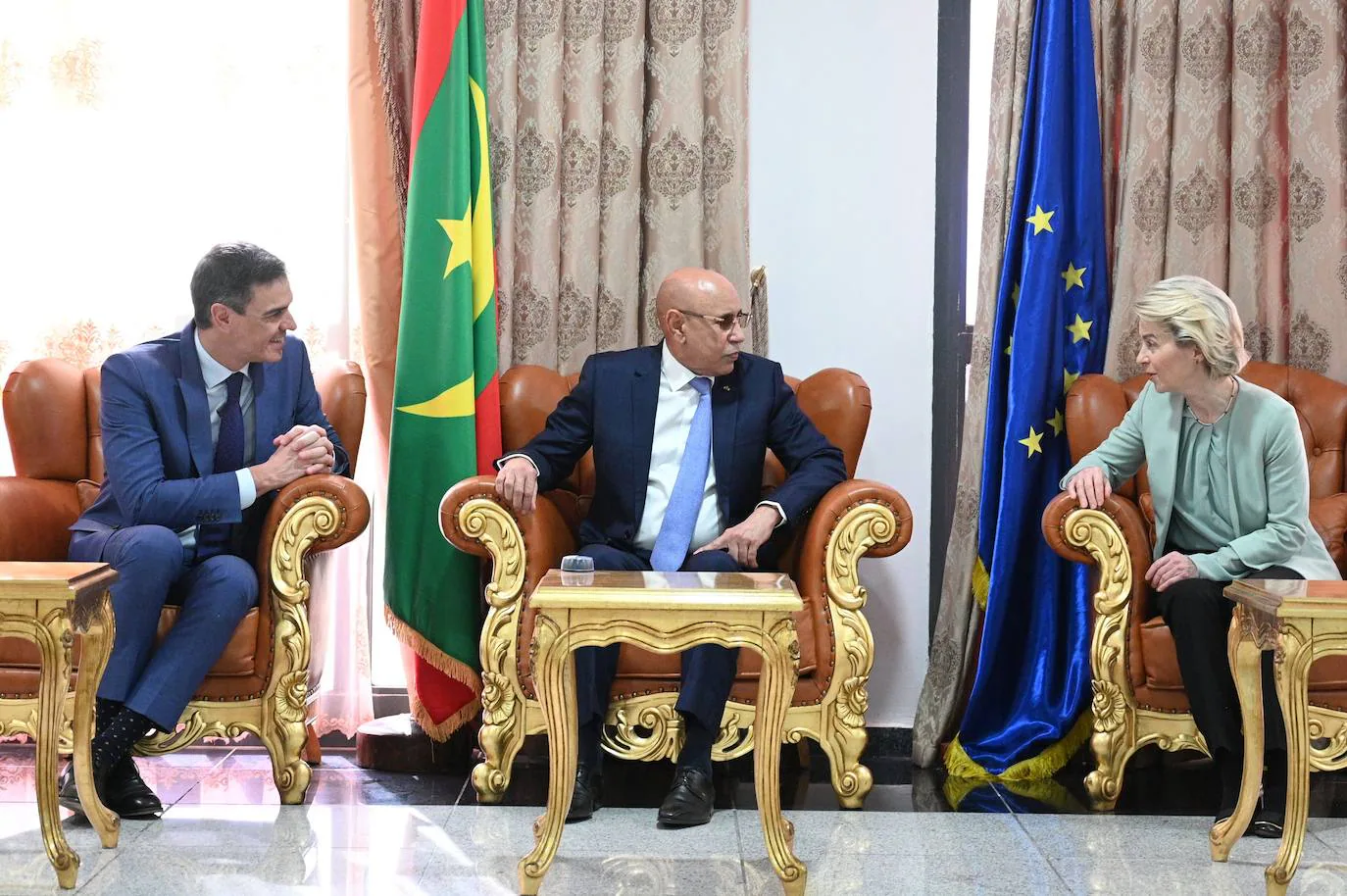Border control
According to Spanish officials, some of the 200 million euros earmarked for Mauritania will be used to bolster its border-control authorities
On Thursday, Pedro Sánchez travelled to Mauritania with Ursula von der Leyen, head of the EU Commission, to meet president Mohamed Ould Ghazouani. Top of ... the agenda was the discussion of measures to reduce illegal migration from the west African country into Europe. The urgency of the problem is evident: last month saw a 300% increase in high-risk sea crossings from Africa to Spain, with 83% of the dinghies arriving in the Canary Islands coming from Mauritania.
Sánchez's and Von der Leyen's proposed solution - to pump 200 million euros into the Mauritanian economy - marks a slight change in the EU's migration policies, which tend to focus on how member states should deal with migrants once they've arrived. But the approach discussed in Nouakchott this week focuses on reducing illegal migration flows from Africa, thereby easing pressure on destination countries - a policy that Spain also pursued, with rather different tactics, throughout the 1980s and 90s.
During those two decades, the deployment of maritime patrols in the Strait of Gibraltar and off the Canaries, and the construction of walls around Ceuta and Melilla that might have given Donald Trump a few ideas, were intended to make it difficult, if not impossible, to enter Spain illegally from the north and west of the continent.
Border-control policies were complemented by several mass regularisations, approved by both centre-right and centre-left governments between 1985 and 2005. These awarded legal resident status to around 1.2 million migrants and were endorsed by many Spanish businesses and trade unions, their argument being that a labour force restricted to the 'Black Money' economy couldn't contribute to social security or pay taxes.
According to Spanish officials, some of the 200 million euros earmarked for Mauritania will be used to bolster its border-control authorities; but most of it will be spent on improving infrastructure, security and humanitarian aid in the country, which has seen an influx of refugees from neighbouring Mali since the latter's coup d'etat in 2012.
This approach - that of stemming illegal migration at the source by the reduction of incentives to flee - is fully in line with Sánchez's 'Focus Africa' plan. Unveiled in 2021, this ambitious ten-year programme is designed to reduce migrant inflows from Sub-Saharan Africa by improving the region's economies. Since then, however, we've heard very little about it. Sánchez also lacks clear policies on how to handle the increasing number of arrivals into the Canaries and along Spain's Mediterranean coast.
Nevertheless, he has one half of the country's migration policy right: a commitment to improving conditions throughout Africa, not only to preserve important economic ties with the continent but also to reduce pressure on Spanish borders. If the 200 million euros going to Mauritania is spent effectively, it could go a long way to furthering that aim.
¿Tienes una suscripción? Inicia sesión

